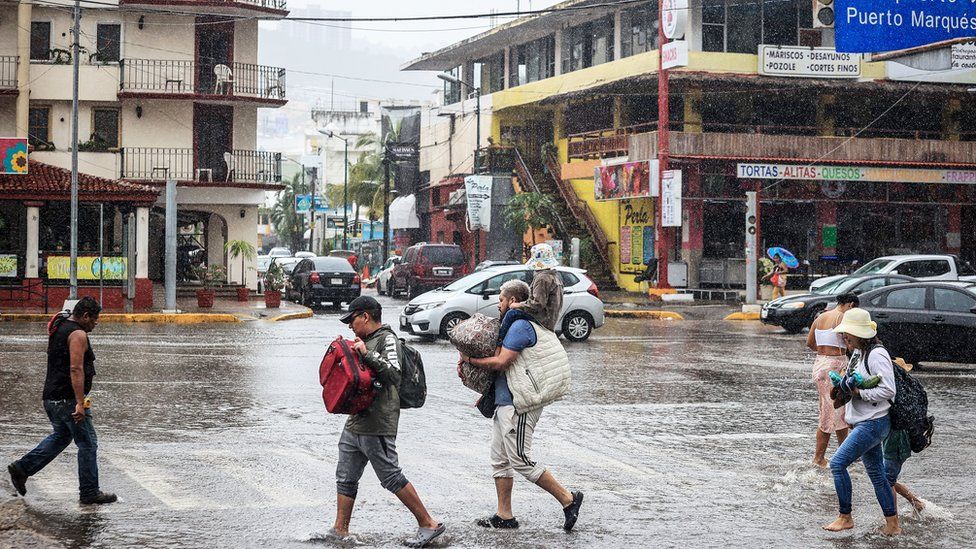ARTICLE AD BOX
 Image source, Shutterstock
Image source, Shutterstock
Before the storm intensified into a hurricane on 17 August, heavy rains reached southern Mexico, the National Meteorological Service (SMN) reported
By Brandon Drenon
BBC News, Washington
A rapidly intensifying hurricane with 145mph (233km/h) wind speed is headed toward the US South West.
The Category 4 hurricane, named Hurricane Hilary, is predicted to first make landfall in Baja California, a Mexican state, on Saturday morning.
Forecasters say it will then lose wind speed and become a tropical storm, tracking north-west toward southern California, Nevada, Arizona and Utah.
It would be the first tropical storm to hit California in over 80 years.
The National Weather Service (NWS) said the potential for heavy rain, ranging from 3-6in (7-15cm) in some areas, and up to 10in in others, could lead to "significant and rare" impacts for parts of southern California and southern Nevada.
In San Diego, the NWS has issued a warning for the "high potential" of flash flooding.
Nearly 26 million people in the US South West are under flood watch.
As of Friday morning, the centre of the hurricane was located roughly 400 miles (643km) south of Mexico's southern edge.
However, the NWS advisory on Friday morning said wind speeds have "rapidly intensified by a remarkable" 74mph over the last 24 hours.
The storm's conditions in the US are predicted to peak on Sunday and Monday, the NWS said.
It is "exceedingly rare" for a tropical storm to come off the ocean and make landfall in California, Stefanie Sullivan, a forecaster with the National Weather Service in San Diego, told The New York Times.
The last time a tropical storm made landfall in southern California was in Long Beach in 1939.
Experts say the severe and abnormal weather events plaguing the US - and several areas across the globe - are being influenced by human-caused climate change.
In the wake of the hottest month on record, July 2023, according to NASA, the deadliest wildfire in modern US history spread across Hawaii on 8 August, killing at least 111 people.
The damage was escalated by hurricane winds passing through the area.

 1 year ago
33
1 year ago
33








 English (US) ·
English (US) ·